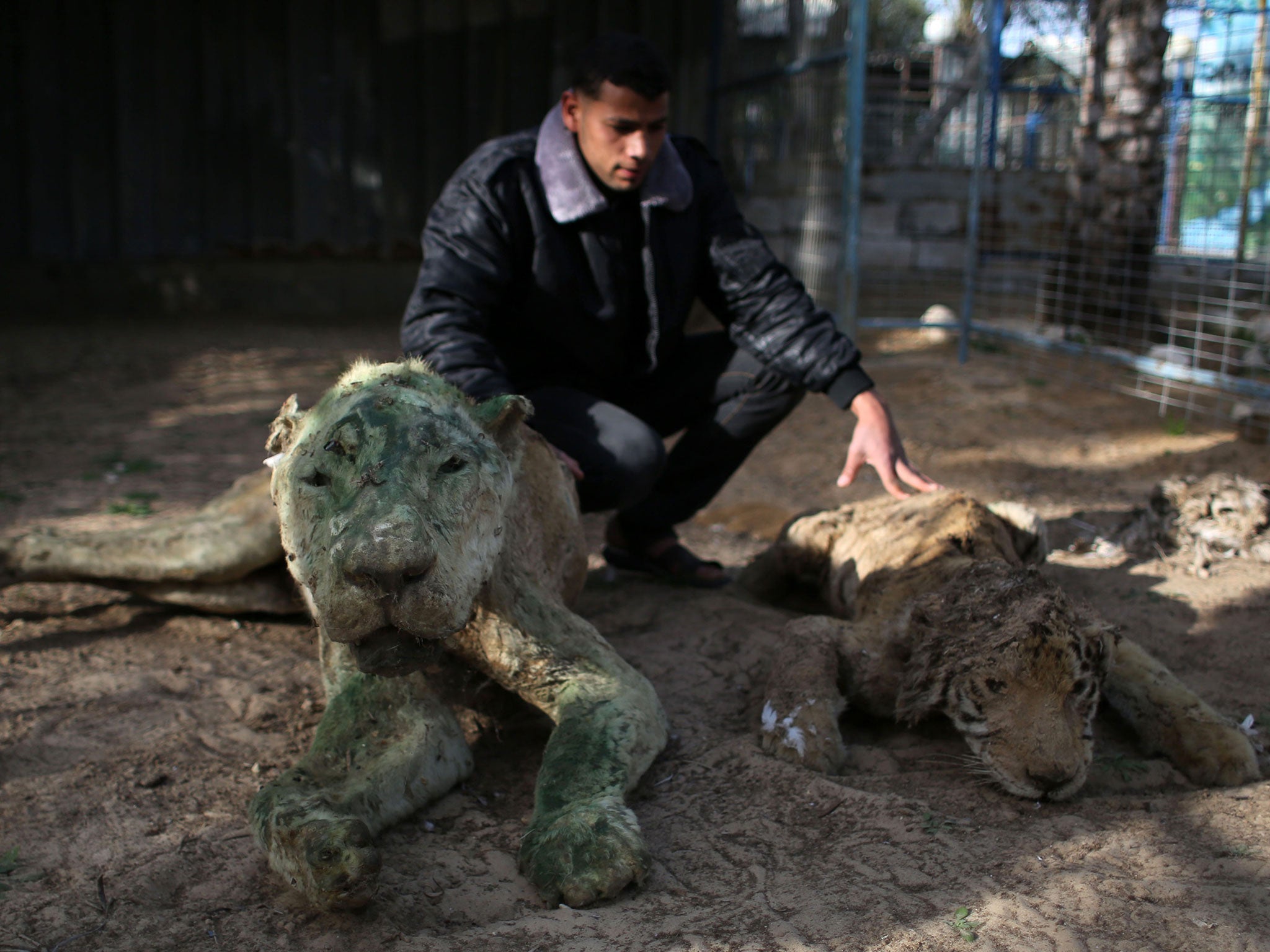Welcome to Khan Younis: Team of international vets describes horrific scenes after jetting in to save 'the worst zoo in the world' in Gaza
The Khan Younis Zoo came to international attention when it was found to be exhibiting long-dead, mummified animals alongside the living

Your support helps us to tell the story
From reproductive rights to climate change to Big Tech, The Independent is on the ground when the story is developing. Whether it's investigating the financials of Elon Musk's pro-Trump PAC or producing our latest documentary, 'The A Word', which shines a light on the American women fighting for reproductive rights, we know how important it is to parse out the facts from the messaging.
At such a critical moment in US history, we need reporters on the ground. Your donation allows us to keep sending journalists to speak to both sides of the story.
The Independent is trusted by Americans across the entire political spectrum. And unlike many other quality news outlets, we choose not to lock Americans out of our reporting and analysis with paywalls. We believe quality journalism should be available to everyone, paid for by those who can afford it.
Your support makes all the difference.An international team of vets that was parachuted in to save a zoo in Gaza dubbed “the worst in the world” has said the scene that met them was “as horrifying as reports had suggested”.
Located in one of the most politically volatile places in the world, the Khan Younis Zoo recently came to international attention after it emerged it was forced to exhibit dead, mummified animals in enclosures next to living ones.
The shocking scenes drew new focus to the region where fighting last summer killed more than 1,960 Palestinians and 67 Israelis.
“There has been much media attention,” said the zoo’s manager Ziyad Oweida. “But no one actually came to help us.”
A team of vets from the animal welfare organisation Four Paws has now become the first such group to receive permission from the authorities to enter the Gaza Strip and administer emergency care to the animals.
The charity said the situation at Khan Younis was “desolate” – with no money left to pay keepers, enclosures were covered with garbage and debris and the few surviving animals had no food and scarce sources of fresh water.
Four Paws veterinary surgeon Dr Amir Khalil, leading the mission to Khan Younis, said: “The surviving big cats – one lioness and a tiger - are penned up in their destroyed enclosures and are highly emaciated. Many other animals have already starved.”
Dr Khalil said his team would provide emergency veterinary care and food for the animals over the next three months, and that deliveries would be organised weekly as there are no proper storage facilities.
Though the zoo now has “no financial means whatsoever”, Dr Khalil said, the team learned that the two big cats at Khan Younis were among around 40 in Gaza that were “smuggled in as cubs, with much effort, via Egypt and through the underground tunnel system”. Many of those tunnels were since destroyed in the last conflict.
Four Paws is one of the few international animal welfare organisations operating in the region, and was again supported at Khan Younis by the French “30 Millions d’Amis” foundation.
In September 2014, Four Paws carried out an emergency operation to transfer three lions from the severely shell-damaged al-Bisan zoo in northern Gaza to a transit station in Jordan.
The group is also setting up a new animal sanctuary in Jordan, the al-Ma’wa for Nature and Wildlife.
Join our commenting forum
Join thought-provoking conversations, follow other Independent readers and see their replies
Comments